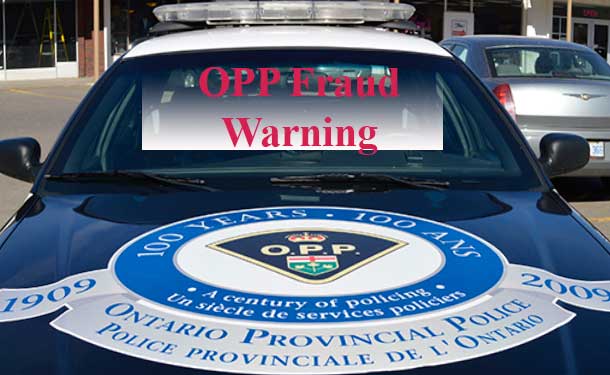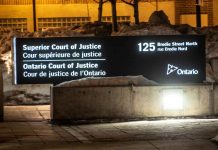WAWA – NEWS – There are many frauds and scams out there trying to pry you away from your hard-earned money. The Superior East OPP are seeking to remind the public to be aware and alert and prevent yourself from becoming a victim of these scams and frauds.
While the efforts are a daily one, it is Crime Prevention week and the Ontario Provincial Police (OPP) want you to do your homework prior to giving any personal information or money to anyone.
The Wawa Detachment is sharing some scams that have been reported in the Wawa area in the past, and want to say, “However, we have to remember that new ones are created every day.”
Perhaps the best advice is to remember that checking out facts and sharing this information – especially with parents and grandparents is really a solid step to halting fraud in its tracks.
Canada Revenue Agency (CRA) Scam
If you receive a fraudulent communication by email, phone, text, mail, from someone that claims to be the CRA and they request personal information, these are scams and never respond.
The CRA will never send you a link and ask you to divulge personal or financial information.
These scams may insist that this personal information is needed so that the taxpayer can receive a refund or a benefit payment. Cases of fraudulent communication could also involve threatening or coercive language to scare individuals into paying fictitious debt to the CRA.
Ask yourself:
- Am I expecting more money from the CRA?
- Does this sound too good to be true?
- Is the requester asking for information I would not provide in my tax return?
- Is the requester asking for information I know the CRA already has on file for me?
Grandparent or Emergency Scam
In a typical “emergency” scam, the victim receives a phone call or e-mail from someone claiming to be a friend or relative, like a grandchild in distress. The caller or e-mailer goes on to indicate that they are in some kind of trouble, such as being in a car crash, they need money for bail, or they are having trouble returning from a foreign country. The fraudster specifically asks that the victims to not tell other relatives. You may get a call from two people, one pretending to be your grandchild and the other pretending to be either a police officer or a lawyer. Your “grandchild” asks questions during the call, getting victims to volunteer personal information. Victims (often seniors) generally don’t verify the story until after their money has been sent through a wire transfer service or they have given access to personal banking or credit card information to criminals.
FRAUD…Recognize it …Report it …Stop it
LEARN MORE
If you suspect you may be the victim of fraud or have been tricked into giving personal or financial information, contact your local OPP detachment at 1-888-310-1122 or the (Link) Canadian Anti-Fraud Centre at 1-888-495-8501.
Competition Bureau: Aims to increase your awareness of the many types of fraud that target Canadians and offers some easy steps you can take to protect yourself and avoid falling victim to fraud.
View “The Little Black Book of Scams” online at www.competitionbureau.gc.ca







